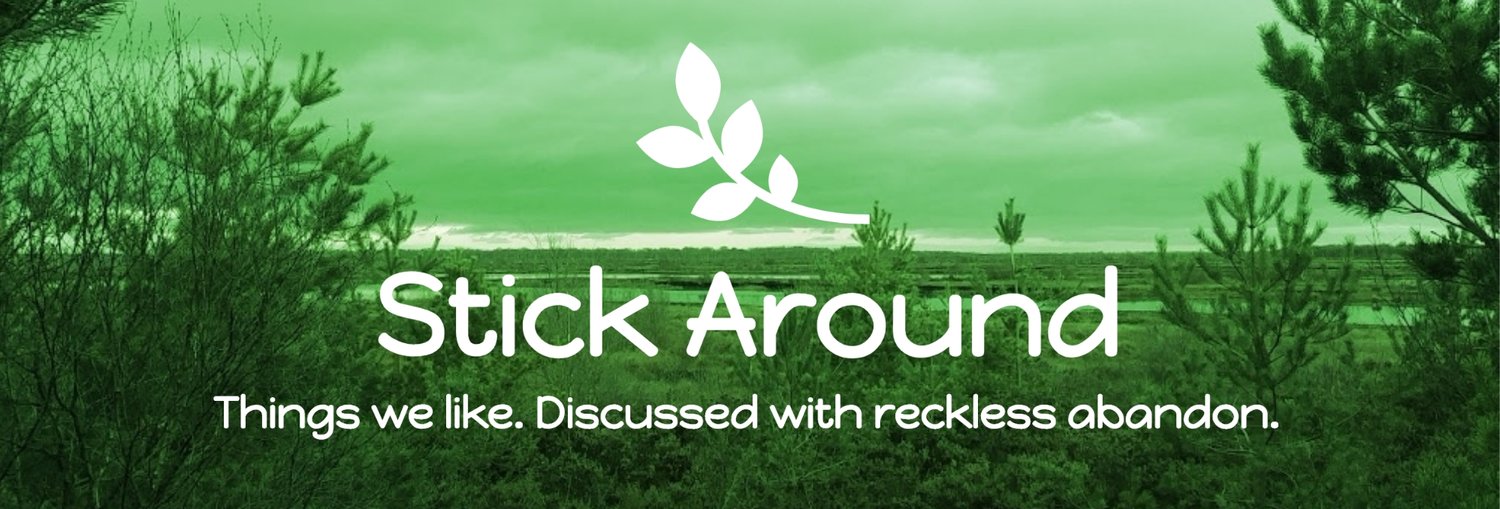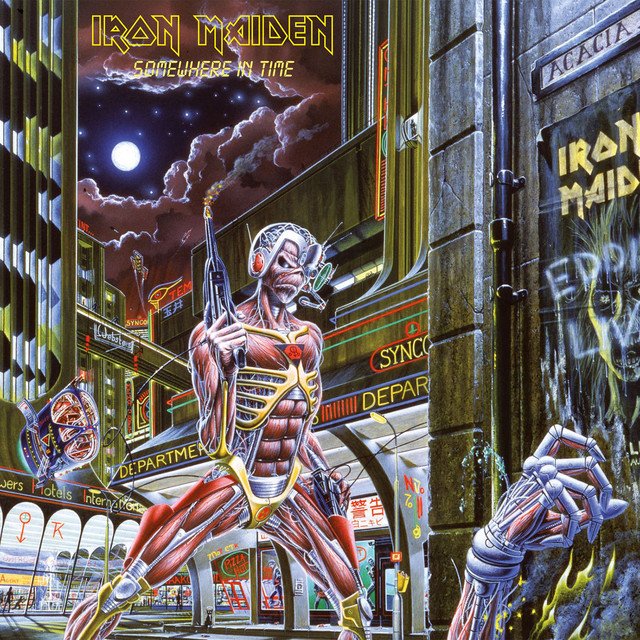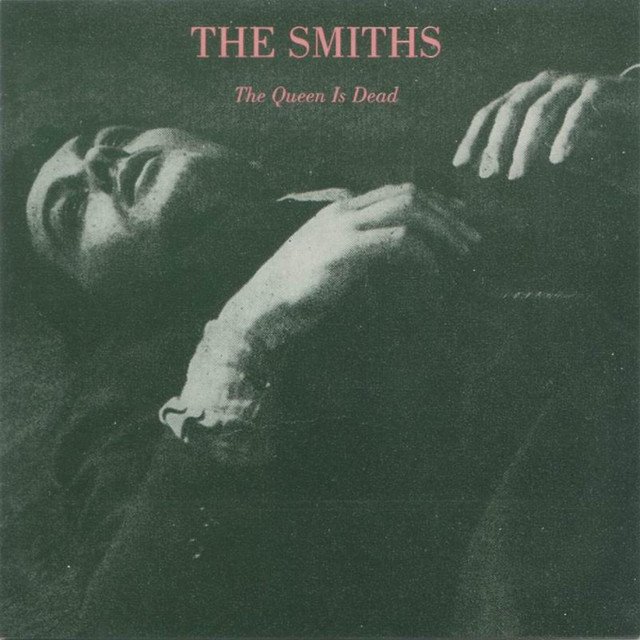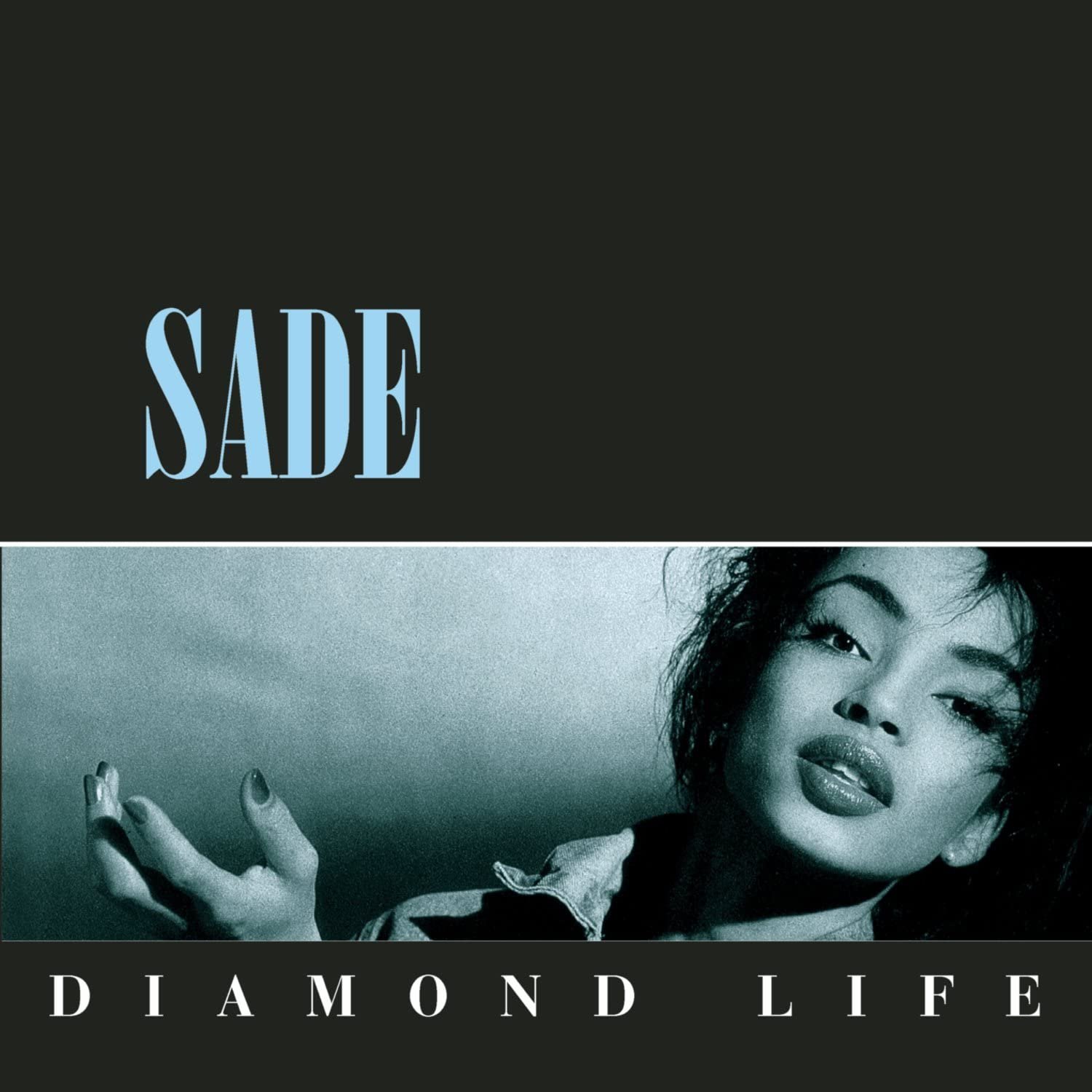1986 - Clive's Top Albums of Every Year Challenge
Over what will likely be the next few years I’m going to be ranking and reviewing the top 5 albums - plus a fair few extras - according to users on rateyourmusic.com (think IMDB for music) from every year from 1960 to the present. If you want to know more, I wrote an introduction to the ‘challenge’ here. You can also read all the other entries I’ve written so far by heading to the lovely index page here.
The top 1986 headlines aren’t particularly positive I’m afraid: the Soviet nuclear reactor at Chernobyl exploded spreading radioactive material across much of Europe and the Space Shuttle Challenger also exploded 73 seconds after launching, killing all seven astronauts on board.
But onto more positive things, here’s rateyourmusic.com users’ top 5 albums of 1986:
#1 The Smiths - The Queen is Dead
#2 Metallica - Master of Puppets
#3 Slayer - Reign in Blood
#4 Astor Piazzolla and The New Tango Quintet: Tango: Zero Hour / Nuevo Tango: Hora Zero
#5 Iron Maiden - Somewhere in Time
As is customary, I’ll also grab some from further down the list
#6 Candlemass - Epicus Doomicus Metallicus
#7 XTC - Skylarking
#8 Talk Talk - The Colour of Spring
#9 Sonic Youth - EVOL
#12 Peter Gabriel - So
#14 Paul Simon - Graceland
#28 Siouxsie & the Banshees - Tinderbox
Finally, to add more female artists to the equation, I’ll be grabbing anything from 1986 from NPR’s list of the best albums of all time by female artists, as well as the same list as voted on by their readers. This year we’ve just got the one album to add:
Janet Jackson - Control
13 reviews to do then, off we go.
13. Somewhere in Time
Iron Maiden
Somewhere in Time is the sixth studio album by English heavy metal band Iron Maiden. It was released on 29 September 1986 in the United Kingdom by EMI Records and in the United States by Capitol Records. It was the band's first album to feature guitar synthesisers. Since its release, Somewhere in Time has been certified platinum by the RIAA, having sold over one million copies in the US. - Wikipedia
Ah, another Iron Maiden release. Unfortunately, they remain that one band regularly appearing in these top 5s that I just can’t get into. Entertaining enough, and I can appreciate why others would like it, but I’m just not feeling it y’know. This one feels a little, dare I say it, poppier. I preferred some of their earlier releases, but this still has plenty of rock-solid riffs, guitar solos, and howling vocals.
Song Picks: Deja Vu
6.5/10
12. Epicus Doomicus Metallicus
Candlemass
Epicus Doomicus Metallicus is the debut album of the Swedish doom metal band Candlemass. It was released June 10, 1986 on Black Dragon Records. On its release, the album had a significantly different sound than other European heavy metal bands of the time, because of their use of operatic vocals mixed over slow and heavy guitar riffs. The album did not sell well on its initial release, which led to the group being dropped from the label during the same year. Since then, the album has been re-issued in several different formats. - Wikipedia
I’m getting a definite Black Sabbath vibe from Mats Björkman’s riffs on Epicus Doomicus Metallicus, they’re slow, methodical and powerful. Indeed they’re easily some of the most crushing I’ve ever heard. Messiah Marcolin’s vocals are operatic, and he’s less prone to high pitched wails than many of his contemporaries. The whole thing is a change of pace from the thrash-metal of Slayer and Metallica.
I’m generally a little biased against music that is too operatic, finding it rather hard to get into. The fact I very much enjoyed this is testament to how good it is, and though it was never going to become a favourite, I can absolutely appreciate why they’re as highly thought of as they are.
Song Picks: Demons Gate, Crystal Ball
8/10
11. Control
Janet Jackson
Control is the third studio album by American singer Janet Jackson, released on February 4, 1986, by A&M Records. Her collaborations with the songwriters and record producers Jimmy Jam and Terry Lewis resulted in an unconventional sound: a fusion of rhythm and blues, rap vocals, funk, disco, and synthesized percussion that established Jackson, Jam and Lewis as the leading innovators of contemporary R&B. The album became Jackson's commercial breakthrough and enabled her to transition into the popular music market, with Control becoming one of the foremost albums of the 1980s and contemporary music. - Wikipedia
Control contrasts nicely to many other pop albums by female artists in the 80s, such as those by Whitney Houston or Cyndi Lauper, in that it often has more of a focus on percussive power and energy than balladry. Tracks aren’t saturated with instruments blasting evocative chord structures, but instead have a sense of space, one which allows the cataclysmic drums to take centre stage. The album is more about funk and groove than it is about melody, and it sets Jackson apart from her contemporaries in way that is refreshing. While others blasted us with powerful vocals, Jackson blasts us with programmed, gated drums and funky bass grooves. It also features some superb guitar solos, which is a good way to my heart.
Song Picks: Control, You Can Be Mine, Principle of Pleasure
8.5/10
10. Skylarking
XTC
Skylarking is the ninth studio album by the English rock band XTC, released 27 October 1986 on Virgin Records. Produced by American musician Todd Rundgren, it is a loose concept album about a nonspecific cycle, such as a day, a year, the seasons, or a life. The title refers to a type of bird (skylark), as well as the Royal Navy term "skylarking", which means "fooling around". It became one of XTC's best-known albums and is generally regarded as their finest work. - Wikipedia
Andy Partridge’s ability to write a tune is evident from the opening Summer Cauldron (a song about a baby in the womb about to enter the world) and Grass (a song about ‘fumbling’ about on some grass). Recording was plagued with tension between Partridge and producer Todd Rundgren, the former apparently saying he wanted to embed an axe in the latter’s head at one point. The tension is somewhat audible, with the band and Partridge’s vocal sounding quite distant from each other. It’s that detached sound that gives the album a very unique feel though. A lot of these tracks would be a little kitschy (I’m looking at you That’s Really Super, Supergirl) if it weren’t for Rundgren’s grey production adding some darkness to Partridge’s ice-lolly coloured melodies, though the curveball lyrics help too. If you want a nerdier take on 80s pop, then you can’t go wrong with Skylarking.
Song Picks: Summer’s Cauldron, Season Cycle, That’s Really Super, Supergirl
8.5/10
9. Tinderbox
Siouxsie & the Banshees
Tinderbox is the seventh studio album by English rock band Siouxsie and the Banshees. It was released on 21 April 1986 by Wonderland and Polydor Records in the United Kingdom and by Geffen Records in the United States. It was the band's first full-length effort recorded with then-new guitarist John Valentine Carruthers; Carruthers had previously only added a few parts on the 1984 EP The Thorn. The first recording sessions for the album took place at Hansa by the Wall in Berlin in May 1985. - Wikipedia
As with 1981’s Juju, which I loved, Siouxsie Sioux’s vocals are in a class of their own, while the fact the guitars have stepped back a little bit gives the whole thing a slightly more ethereal feel. Tinderbox is one of those albums that is hard to get a grapple of, with the single Cities in Dust (about Pompeii) providing one of the album’s firmer emotional handholds with its great chorus. Tinderbox is the perfect mix of intrigue and accessibility.
Song Picks: Cities in Dust
9/10
8. Master of Puppets
Metallica
Master of Puppets is the third studio album by the American heavy metal band Metallica, released on March 3, 1986, by Elektra Records. Recorded in Denmark at Sweet Silence Studios with producer Flemming Rasmussen, it was the band's last album to feature bassist Cliff Burton, who died in a bus accident in Sweden during the album's promotional tour. - Wikipedia
Widely regarded as one of the most influential thrash metal albums of all time, it incrementally improves on Ride the Lightning in pretty much every way, and that was already a very good album. The riffs are punchier, the whole thing feels more cohesive, and while Ride the Lightning felt more cerebral than visceral, Master of Puppets, although still leaning towards the former, hits a lot harder in terms of its production and riffs than its predecessor. Anyway, enough comparing, Master of Puppets is a truly great album in a genre that I have to confess to knowing little about. Hetfield’s vocals don’t have much range, but they do manage to add weight to the already heavy riffs here, and when he does crack out a more melodic part - such as on the excellent title track - it hits.
I’ve been a critic of Lars Ulrich over the years, largely because when I saw the band at Rock Im Park in Germany many years ago he was consistently well ahead of the beat, and even on these cleaner recordings he seems in a bigger rush than the rest of the band to me, denying the tracks some of the percussive power a more ‘relaxed’ drummer might have given them, which is a shame.
Nevertheless, Master of Puppets is marvellous. I find people are often too quick to call something heavy, but this absolutely qualifies. It sounds like a massive meteorite hurtling through Earth’s atmosphere.
Song Picks: Master of Puppets, The Thing That Should Not Be, Damage Inc
9/10
7. Reign in Blood
Slayer
Reign in Blood is the third studio album by American thrash metal band Slayer, released on October 7, 1986, by Def Jam Recordings. The album was the band's first collaboration with producer Rick Rubin, whose input helped the band's sound evolve. The release date of the album was delayed because of concerns regarding the lyrical subject matter of the opening track "Angel of Death", which refers to Josef Mengele and describes acts such as human experimentation that he committed at the Auschwitz concentration camp. The band's members stated that they did not condone Nazism and were merely interested in the subject. - Wikipedia
Rick Rubin is now synonymous with the loudness wars, but his production here is perfect. Reign In Blood hits harder than Metallica’s Master of Puppets, and that’s going somewhere. This is real thrash metal, no-nonsense melodic acoustic breakdowns here, just pedal-to-the-metal blistering riffs, powerhouse drumming and Araya’s vocals roaring like an angry lion. I kid of course, melodic breakdowns are fine. Reign In Blood though wants nothing to do with them and thinks they’re a bootless errand. Reign In Blood is clearly keen not to waste your time, hence why it is only 28 minutes long, and not a second is wasted.
Song Picks: Altar of Sacrifice, Jesus Saves, Postmortem
9/10
6. The Colour of Spring
Talk Talk
The Colour of Spring is the third studio album by English band Talk Talk, released in February 1986. Musically, The Colour of Spring was a major step away from the synthesised pop of early Talk Talk, with a greater focus on guitars, pianos, and organs on such songs as "Life's What You Make It", "Living in Another World" and "Give It Up". It had a sound described by the band as much more organic than their earlier records, with the improvisation that was to dominate on their later works already apparent in the recording process. - Wikipedia
Is there a more sumptuous piece of 80s production than the opening Happiness is Easy? I think not. Webb’s bass groove, the variaphone and Hollis’ vocals all blend together to create something that is like audible honey. Hell, this whole thing is some gorgeous, sophisticated desert, like a fine tiramisu. Everything is tastefully done, and has had a lot of thought, but it at no point feels sterile. The Colour of Spring is one of those albums I’d not heard of at all that I’m really happy this challenge has introduced me to.
Song Picks: Happiness is Easy, I Don’t Believe in You, Life is What You Make It, Time it’s Time
9/10
4. Tango: Zero Hour
Astor Piazzolla
Tango: Zero Hour (Nuevo Tango: Hora Zero in Spanish) is an album by Ástor Piazzolla and his Quinteto Nuevo Tango (in English: New Tango Quintet, often loosely referred to as his second quintet). It was released in September 1986 on American Clavé, and re-released on Pangaea Records in 1988. - Wikipedia
Piazzolla considered this his greatest album, and it appropriately marks zero hour for my adventure into any sort of tango music. Zero Hour is glorious, it rings with an energy and intricacy that never loses its feeling of rawness. I’d like to say it sounds like a dusty Spanish town on a hot day, where people have their windows open talking to each other across the street, but that would be incorrect. Zero Hour sounds like a couple dancing as that street interchangeably loudly and quietly collapses around them, until there’s nothing left but them in a desert of dust and rubble. If that sounds dramatic, just wait until you’ve heard this hauntingly beautiful record.
Song Pick: Concierto Para Quinteto
9/10
5. So
Peter Gabriel
So is the fifth studio album by English singer-songwriter Peter Gabriel, released on 19 May 1986 by Charisma Records. After working on the soundtrack to the film Birdy (1984), producer Daniel Lanois was invited to remain at Gabriel's Somerset home during 1985 to work on his next solo project. Initial sessions for So consisted of Gabriel, Lanois and guitarist David Rhodes, although these grew to include a number of percussionists. Often considered his best and most accessible album, So was an immediate commercial success and transformed Gabriel from a cult artist into a mainstream star, becoming his best-selling solo release. - Wikipedia
So opens with Red Rain, a typically epic and 80s sounding Gabriel track, and one of my favourites. Though I think the live version from Secret World Live is superior to the version here, largely because I prefer Manu Katche’s drumming on the live track to the drumming here, it’s still a really powerful way to open the album. The album continues in a pretty forceful vein: gated drums, synths, and an exaggerated sense of drama helping bring a really 80s feel to the record. Sledgehammer is one of Gabriel’s most famous songs, and it brilliantly demonstrates his nous for huge sounding production (with backing choirs and a synthesised shakuhachi flute in this case) and playful melodies. Kate Bush features on the angelic Don’t Give Up, and excels in production perhaps a little less experimental than that on her own songs. In Your Eyes, ‘inspired by an African tradition of ambiguity in song between romantic love and love of God’ according to Gabriel, received a new lease of life when it played a prominent role in a scene in Say Anything…, starring John Cusack, is another one of the album’s famous tracks. A perfect love song that escapes its rather cheesy lyrical theme through yet more monumental production (this time including a clear African influence, including a great part in Wolof by Youssou N'Dour) and melodies to die for.
So is another 80s classic, from the man who had a knack for distilling the musical ideas of the decade (at least in pop) into songs that were catchy, huge, and interesting. Some say the album leans too much into the time, and feels dated now. I disagree, it’s a product of the 80s, and it wears that on its sleeve like a badge of honour.
Song Picks: In Your Eyes, Red Rain, Sledgehammer, Don’t Give Up, That Voice Again
9/10
3. EVOL
Sonic Youth
EVOL is the third full-length studio album by the American alternative rock band Sonic Youth. Released in May 1986, EVOL was Sonic Youth’s first album on SST Records, and also the first album to feature then-new drummer Steve Shelley who had just replaced Bob Bert. In retrospective reviews, critics cite EVOL as marking Sonic Youth’s transition from their no wave roots toward a greater pop sensibility, while bassist Kim Gordon has referred to it as the band’s “goth record.” - Wikipedia
The first in what will be plenty of Sonic Youth albums appearing on these lists in the upcoming years is a paranoid and dark album of guitar chord drones and vocals that sound resigned to the ether. On Shadow of a Doubt Gordon whispers hauntingly over the plucked guitar part, before the other vocalists back her ever more paranoid screams during the chorus (if you can call it that). The fact the band has three distinct vocalists (bassist Kim Gordon and guitarists Lee Ranaldo and Thurston Moore) adds to the album’s anarchy. EVOL can be a challenging listen, particularly for those prone to anxiety among us. There’s a deep unease to a lot of the guitar work, Starpower features a superb riff that is both unsettling and enjoyable, while In the Kingdom #19 switches between a head-bopping riff and what sounds like an air raid (reminiscent of Hendrix’s version of the Star Spangled Banner) in a way that only Sonic Youth could make work. On Death to our Friends the guitar sounds so dissonant it’s as if it’s been found in an attic and never tuned.
EVOL is a dark chaos which has begun transforming itself into something resembling songs. It’s a masterful subversion of established genres to create something that sounds so punk, that you can’t call it punk at all.
Song Picks: Starpower; Shadow of a Doubt; Secret Girl; Madonna, Sean and Me
9/10
2. The Queen is Dead
The Smiths
The Queen Is Dead is the third studio album by English rock band the Smiths. Released on 16 June 1986 in the United Kingdom by Rough Trade Records, and on 23 June 1986 in the US by Sire Records, it spent 22 weeks on the UK Albums Chart, peaking at number two. It also peaked at number 70 on the US Billboard 200, and was certified Gold by the RIAA in late 1990.
In 2020, Rolling Stone ranked The Queen Is Dead 113th on Rolling Stone's 500 Greatest Albums of All Time. In its 2013 list, the NME named The Queen Is Dead the greatest album of all time. - Wikipedia
I had a feeling as I listened to other albums by the Smiths that this one would end up being my favourite, and it is. The Queen is Dead does away with some of the consistency issues of previous albums (though I very much like them all) and is packed front to back with everything that makes the Smiths great. Johnny Marr’s riffs power things along at pace, and occasionally even add a dramatic sense of urgency to things, such as on the opening title track’s second half. Morrissey is at his melodic best, I’ve talked about his style being almost operatic, and here its singularity is coupled with memorable melody after memorable melody. The album also contains some of his best lyrics, ‘I’ve got the 21st century breathing down my neck’ being just one example of the many great lines on this record. Love him or hate him, these are some of the most memorable vocal performances of the 80s.
The drums and bass are on point too, aided by the album’s sleek production, no doubt as much the work of Stephen Street (who produced Meat is Murder) at the mixing desk, as it was that of Marr and Morrissey who are credited as producers here.
The Queen is Dead is one of the 80s’ best bands at their absolute peak, and its effect on all ‘indie’ music since can’t be understated, something made evident by the fact that the NME - who typically loves that genre - named it the best album of all time in 2013.
Song Picks: The Queen is Dead, There is a Light That Never Goes Out, Bigmouth Strikes Again
9.5/10
1. Graceland
Paul Simon
Graceland is the seventh solo studio album by the American singer-songwriter Paul Simon. It was produced by Simon, engineered by Roy Halee and released on August 25, 1986, by Warner Bros. Records. In the early 1980s, Simon's relationship with his former musical partner Art Garfunkel had deteriorated, his marriage to actress Carrie Fisher had collapsed, and his previous record, Hearts and Bones (1983), had been a commercial failure. In 1984, after a period of depression, Simon became fascinated by a bootleg cassette of mbaqanga, South African street music. He and Halee visited Johannesburg, where they spent two weeks recording with South African musicians. Further recordings were held in the United States, with guest musicians including Linda Ronstadt, the Everly Brothers, Louisiana band Good Rockin' Dopsie and the Twisters, and Los Angeles band Los Lobos. - Wikipedia
Objective reviews don’t exist - particularly not when I’m writing them - but this is an album that it’s particularly hard for me to look at with any distance. If I had to name one album that was the biggest part of my childhood, it’d be Graceland. My Mum had the tape, and I remember listening to it repeatedly on our drive to and from school every day in our old Volvo. It’s an album I know every word to, every nuance, and where the end of one song immediately means the intro to the next starts playing in my head. It’s been a factor of so much of my life that it doesn’t take me back to any specific part of it, but instead feels like the musical equivalent of the teddy bear I was given at birth. That guy still sits on my sofa by the way.
The idea of blending western music with South-African music sounds like some sort of gimmick, but Simon and his multiple collaborators here absolutely pull it off. This is a glorious blending of musical styles, one that soaks up another culture, rather than tokenises it, a beautiful testament to the artistry in diversity. It’s the musical equivalent of living in another country and adopting its culture rather than taking a tour bus, looking at the highlights, and returning with a head full of stereotypes. Throw into the mix fact that this is some of Simon’s best lyrical and melodic work since Simon & Garfunkel, delivered with a cadence like honey, and you get an album that is just a pure, effervescent joy. I don’t think an album has to be perfect to get a 10, but Graceland is.
P.S I think the title track is one of the most finely crafted songs of all time.
And she said, "losing love
Is like a window in your heart
Everybody sees you're blown apart
Everybody sees the wind blow"
Song Picks: Graceland, I Know What I Know, Gumboots, Diamonds on the Soles of Her Shoes, You Can Call Me Al,
10/10








































